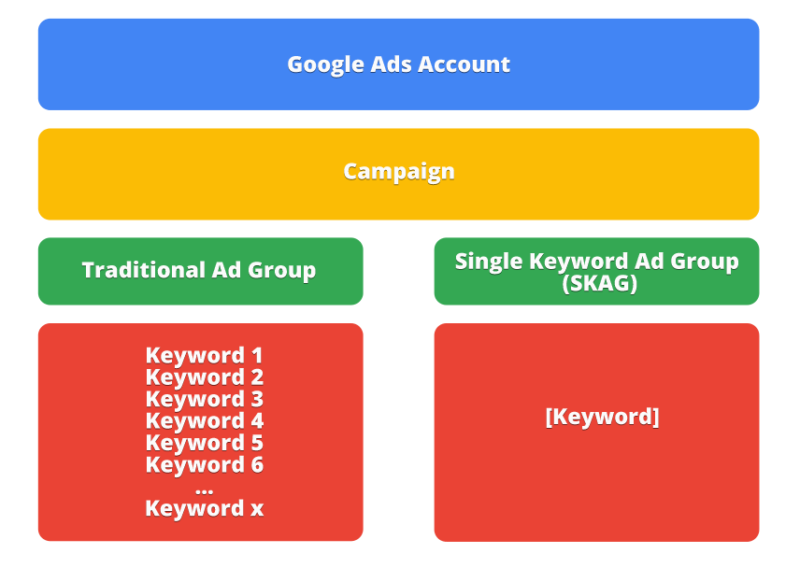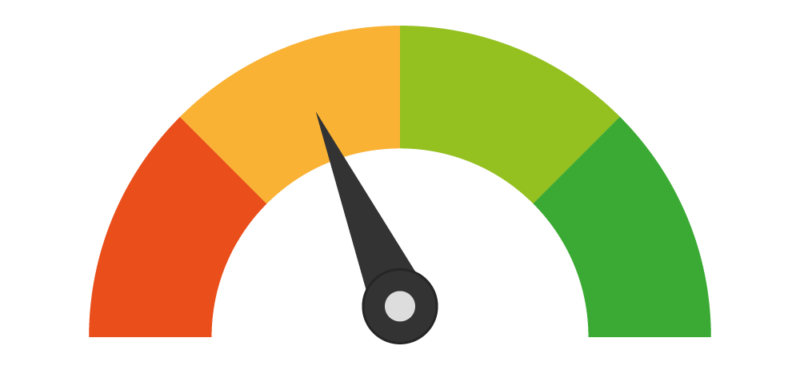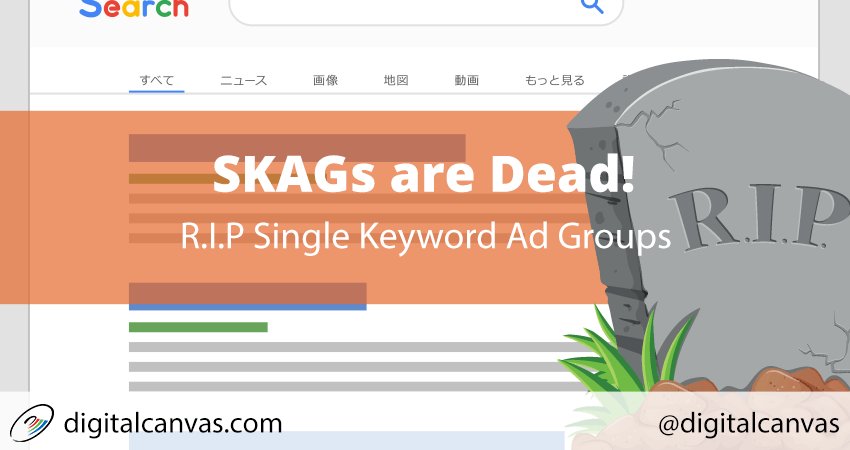Want to up your PPC game and kill the competition?
There is a ton of information to be found online about how awesome Single Keyword Ad Groups are, how to set up this mystical Google Ads hack, and why you should do it.
So, in 2019, why another article about Single Keyword Ad Groups (SKAGs)?
Simple. Single Keyword Ad Groups are Dead.
What are Single Keyword Ad Groups (SKAGs)
SKAGs are still a much-debated topic by Google Ads managers. Using this technique is supposed to skyrocket your campaign performance and outbid your competition.
Many Professionals recommend between 15 – 20 keywords per Ad Group.
Let’s talk about what a SKAG is and how this is setup.
The concept is to add one and only one keyword (exact match) into an Ad Group. In theory, this will give the best performance for that Ad because it’s hyper-targeted with one specific keyword. Some of the arguments are:
One keyword will increase the Quality Score (QS)
Increase click-through rates (CTR)
Lower cost-per-click (CPC)
So, you’ll outperform your competitors with very targeted Ad Groups and Keywords.

My Experience with Single Keyword Ad Groups
I used to do this (way) back in 2016, and it worked like a charm. I’d pull the best performing keywords out of the Ad Group and create a brand new Ad Group (even name it SKAG) just for that one exact match keyword. What I noticed is the Quality Score increase and these were the highest performing and most profitable campaigns.
Life was great!
…then it ended.
I noticed starting in 2018 the performance started dropping. The Cost per Acquisition (CPA) started going up, and Click per Click (CPC) gradually started increasing.
What Happened to Single Keyword Ad Groups?
In September 2018 Google announced they would start using close variants to exact match keywords.
Oh My! So, an exact match is no longer an exact match? There goes SKAGs, right?
Sort of. Yes, Single Keyword Ad Groups (SKAGs) are Dead and now we’re competing again ourselves for close variants in other groups.
Then in July 2019, Google announced they would extend close variants to board and phrase match.
So, the benefit of SKAGs is still there, it just matches for close variants. Which will actually work better in most circumstances, because you don’t have to have massive lists of keywords. Google will automatically broaden the match for close variants.
Just make sure to keep an eye on the matches, and remove keywords you don’t with negative keywords.
How Close Variants Work
Now the way Exact match works with close variants, Google will find words close to the Exact Match keyword.
Some of the close variants include:
- Misspellings
- Singular or Plural forms
- Stemmings (for example, and climb, climbing)
- Abbreviations
- Synonyms
- Same search intent
- Implied words
Close variants are a great way to capture a wider range of keywords without having to enter every single variant manually.
So, for example:
| Exact match | Ads may show on searches for | Ads won’t show for |
| [shoes for women] | Women’s shoes Women shoes Shoes for women Woman shoes |
Blue women’s shoes Buy shoes |
This reduced the number of required keywords, but still displays the Ad to visitors what close content search and intent.
Overall a cleaner and more manageable account.
The Death of Single Keyword Ad Groups (SKAGs)
So, the real benefit of SKAGs is gone, but really SKAGs are actually a management headache because they make a mess of your account, creating tons of Ad Groups, it’s just a lot to manage and now the SKAGs are competing against the rest of the keywords in other campaigns.
Now What?
Just run your campaigns and Ad Groups as you would normally, without SKAGs. Your campaigns will be clean and easier to manage. Since Google is now using Close Variance, you actually need fewer keywords, Ad, duplicates and less management.
Conclusion
Good job Google.
Although I enjoyed the performance of Single Keyword Ad Groups, I hated working on accounts with lots of SKAGs. It was a nightmare to keep track of everything, and move the keywords around and create a lot of Ad Groups.
Without Single Keyword Ad Groups is how Ad Groups should have worked in the first place. My accounts are cleaner and easier to manage.
If you are thinking of trying SKAGs, it’s fine if you have a small account, a few Ad Groups and a small number of keywords. It’ll actually work just like a Traditional Ad Group anyway.
But, if you have a large complex account, with a lot of Ad Groups, Ads and Keywords, don’t bother. There is now no benefit, it will create a lot of work for you and you’ll actually be competing against your own keywords.
Google Ads Performance Grade
FREE

How much money are you wasting?
